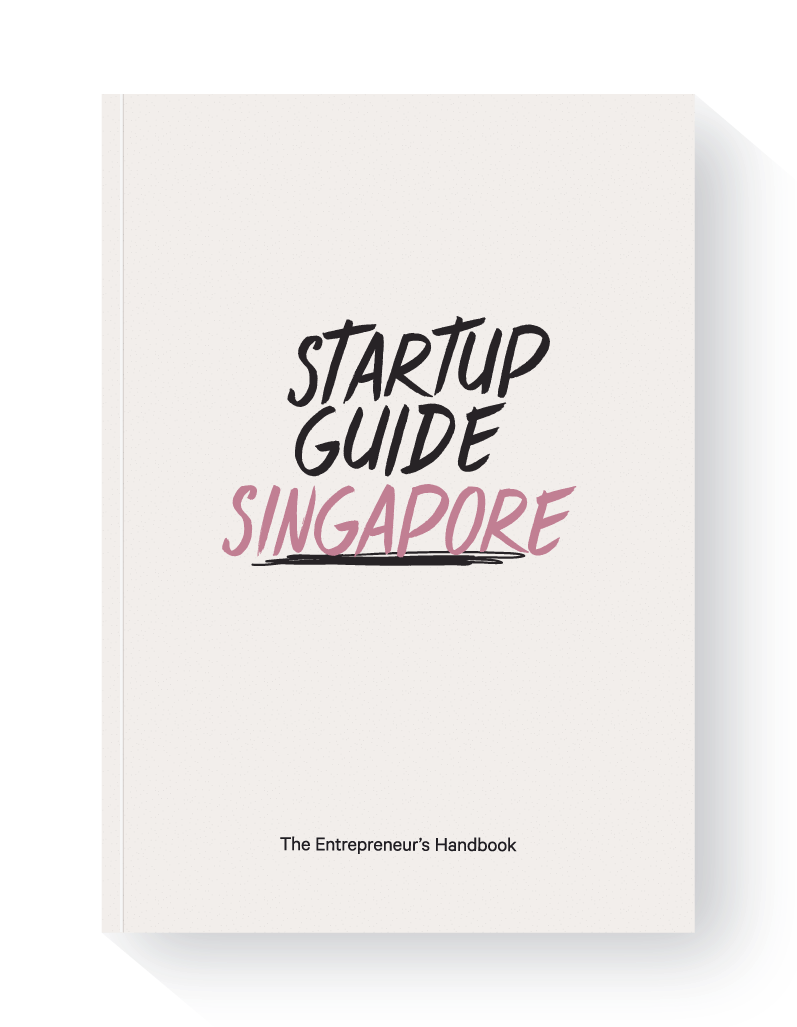Singapore and Germany: An international perspective on the challenges faced by startups
hat legal difficulties can founders run into when setting up a business in Singapore or Germany? And how can they manage them? We chatted with Birgitta von Dresky, a Singapore-based partner at Luther LLP, who joined the firm in 2008, to hear her advice.
Launching a new business outside your home country can be a disconcerting prospect for many founders. In addition to managing the ins and outs of your own business plan, you also have to contend with an entirely new business and legal environment.
Singapore has risen up the ranks in recent years as one of the best places in the world to start a company. Not only has the government smoothed out the process of starting a business in the island nation, it’s also reduced overhead costs for startups and implemented a favorable tax system. It also has a highly flexible legal structure, which makes dealing with company matters fast and cost-effective.
Germany, on the other hand, is known for being an economic powerhouse and a gateway to the European market. Increased levels of bureaucracy, however, make the process of starting a company in this country more complex and time-consuming.
Luther LLP is one of the largest German-based law firms in Singapore and, more widely, Southeast Asia that offers a range of legal, tax and corporate services to startups and investors.
We tap into the firm’s unique perspective on the legal difficulties founders can run into when looking to set up a business in Singapore and Germany, and hear Birgitta’s advice on how to handle them.
Common law vs civil law
Before we dive more deeply into this topic, it’s crucial that we outline the differences between each country’s legal system. Birgitta explains that while Singapore corresponds to a ‘common law’ legal system countries like Germany, France and Switzerland – and other countries in continental Europe –refer to a ‘civil law’ legal system.
“In terms of formalities, the major difference between the two systems is that civil-law countries have a legal framework with codified laws [legally binding laws that are enforced by an authority],” Birgitta tells Startup Guide.
“An example of this is the Civil Code, which states the main rights and obligations parties are bound by when entering into a contract, such as a sales and purchase agreement. The act would already provide a company to claim interest in case of late payment, for instance.”
However, in Singapore, and other common-law jurisdictions, there are very few codified laws.
Put simply, in civil-law systems, legislation is the primary source of law. By contrast, in common-law systems, judges play a more central role in shaping the law.

Munich. Photo: Kolar.io / Unsplash
So, what does this mean for businesses?
Well, for starters, commercial agreements drawn up in civil-law countries are shorter and less detailed. This is because there is no need to restate codified law in the contract.
In common-law jurisdictions, however, the contract “includes legal definitions and the rights and obligations of different parties in much more detail, since these are not stated yet in codified law,” Birgitta says. “That’s one of the reasons why these contracts are longer and more complex.”
Also, when it comes to settling company disputes, the legal procedures of both countries are entirely different. In common-law countries like Singapore they tend to be more complex and costly than in civil-law countries like Germany. That’s why Birgitta advises startups to get support from legal experts as soon as possible in the event of a fallout.
Setting up a company
Singapore is hailed as one of the easiest places in the world to start a business. Entrepreneurs can incorporate a company in less than a day, most things can be done online in English, and there are few issues with corruption or red tape, according to Birgitta.
“The legal framework in Singapore, especially when it comes to company and corporate law, is very flexible and any changes – such as adding more shareholders, transferring shares or creating new classes of shares – can be made quickly. This is especially useful for startups: Time is critical and it’s essential that everything moves fast.”
Setting up a company in Germany, however, is quite a different experience. “It takes at least 2–3 months to incorporate your company in civil-law countries, if not longer,” says Birgitta.
This is because you have to inform a notary that you want to set up a company, who then submits all the relevant documents to the commercial register. And, more often than not, forms are not available in English, which can cause significant problems for international founders.
Administrative difficulties
While startups will come up against very few problems in Singapore, according to Birgitta, one of the challenges that entrepreneurs face is opening a bank account quickly.
“In some cases, it can take up to four months to open an account in Singapore. Banks have to undergo detailed compliance checks to onboard a customer, which can really delay startup operations. But, this is a problem worldwide,” says Birgitta.
Germany presents different problems, with bureaucracy a significant hurdle, especially for foreign founders.
“You have to make sure that you have registered with the various tax authorities and that you don’t miss out on compliance requirements such as social security payments, data protection,
government service tax and correct business registration,” says Birgitta, adding that Germany really has “a more complex system” than Singapore.
Birgitta recommends getting a service provider on board to help you deal with tasks such as accounting, tax and compliance regulations. This way, founders can focus on “moving their businesses forward.”
As a country, Germany is culturally very interesting: It’s diverse and liberal. I think young people are drawn in by that
Entrepreneurial culture
Despite Germany’s bureaucratic hurdles, the country is still a popular destination for entrepreneurs. It is also home to a number of lively, international startup hubs in cities such as Cologne, Hamburg and Berlin. Foreign founders needn’t be put off by their lack of German skills either, as nearly everyone speaks perfect English.
“As a country, Germany is culturally very interesting: It’s diverse and liberal. I think young people are drawn in by that,” says Birgitta.
Still, entrepreneurs in Germany are often called out for being too risk-averse, preventing the creation of bright ideas and limiting innovation.
“Germans generally take a more cautious approach to life, which is reflected in the number of insurance policies the country has,” says Birgitta. Singaporeans, however, tend to have a more “can-do attitude,” she explains, where more time is spent doing rather than preparing for undesirable outcomes.
If you come to Germany with the same risk appetite that you would have in Singapore, then there’s really not much difference in the business environment of each country
This is perhaps down to the blend of cultures that have come together in Singapore. The island nation’s unique geographic position between India and Hong Kong has fostered a diverse environment where founders from across Asia have come to take advantage of Singapore’s favorable tax system and friendly startup culture.
However, a founder’s success in any country ultimately depends on their own skills and motivation.
“If you come to Germany with the same risk appetite that you would have in Singapore, then there’s really not much difference in the business environment of each country,” says Birgitta. “If you have the drive, you can make it anywhere.”
Advice for founders
Singapore and Germany differ dramatically in terms of their business and legal environments. Still, there are universal things that entrepreneurs should keep in mind when seeking to start up in any country.
For one, founders should ensure they have a shareholder agreement in place before launching their company and inviting other shareholders in. “This really is a must,” says Birgitta. “It’s critical to ensure that shareholders – whether founders or investors – know their rights and obligations with regards to contribution, voting rights and exits.”
Another issue that should be addressed from the outset is intellectual property rights.

“Often, intellectual property – like a code for an app, for example – is created by an individual prior to incorporating the company. But, strictly speaking, the company doesn’t own it until the rights of the intellectual property are transferred to the company.”
Finally, launching a new business overseas can be daunting, especially when faced with a new legal reality. That’s why it’s important for startups to be prepared for the unexpected.
“Don’t assume that the legal framework is the same as in your home country, as you might get a big surprise. Find an attorney in the country where your business is based who also understands the legal framework of the country you come from. That way, you are assured of getting the right help.”
Main photo: Tobias Reich / Unsplash
Birgitta von Dresky: Startup Guide Singapore


